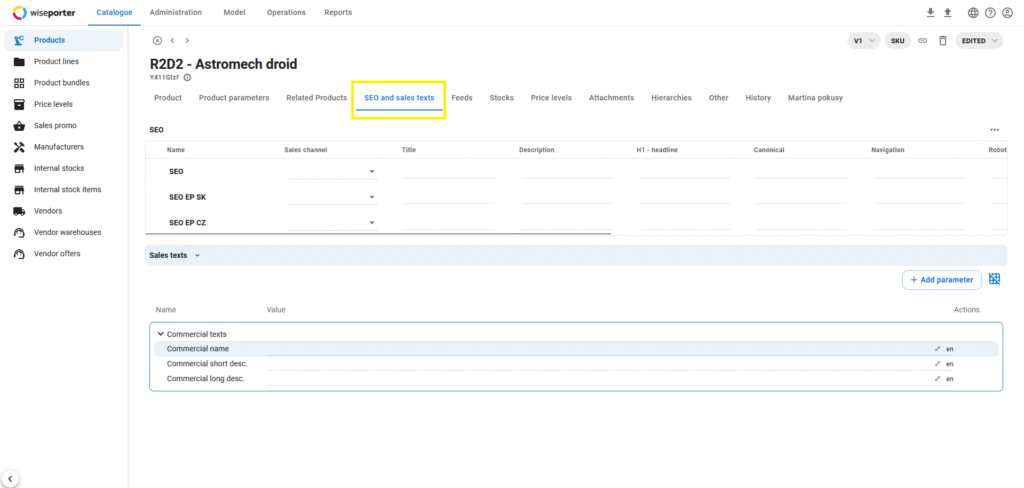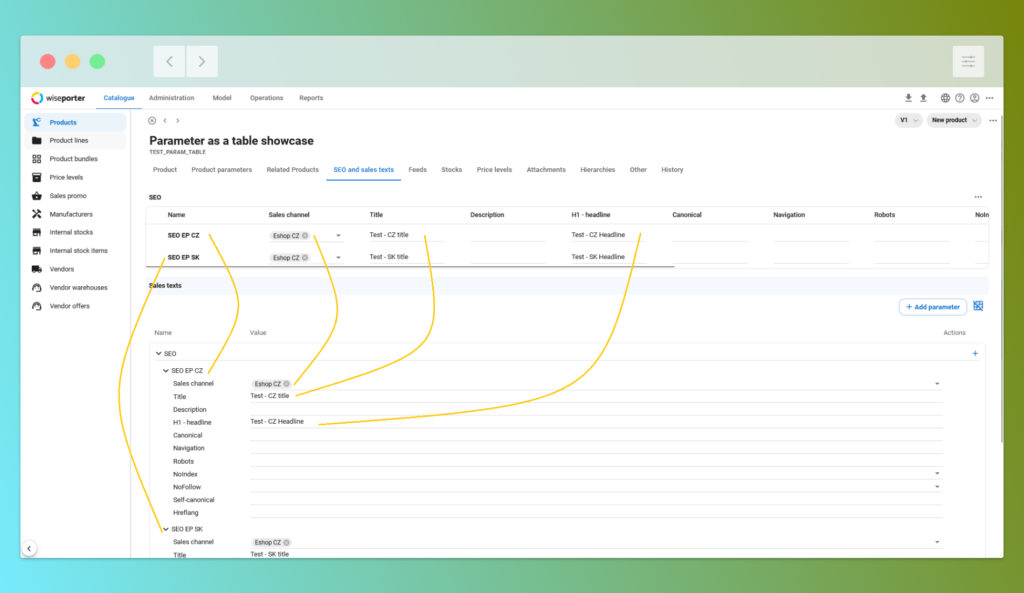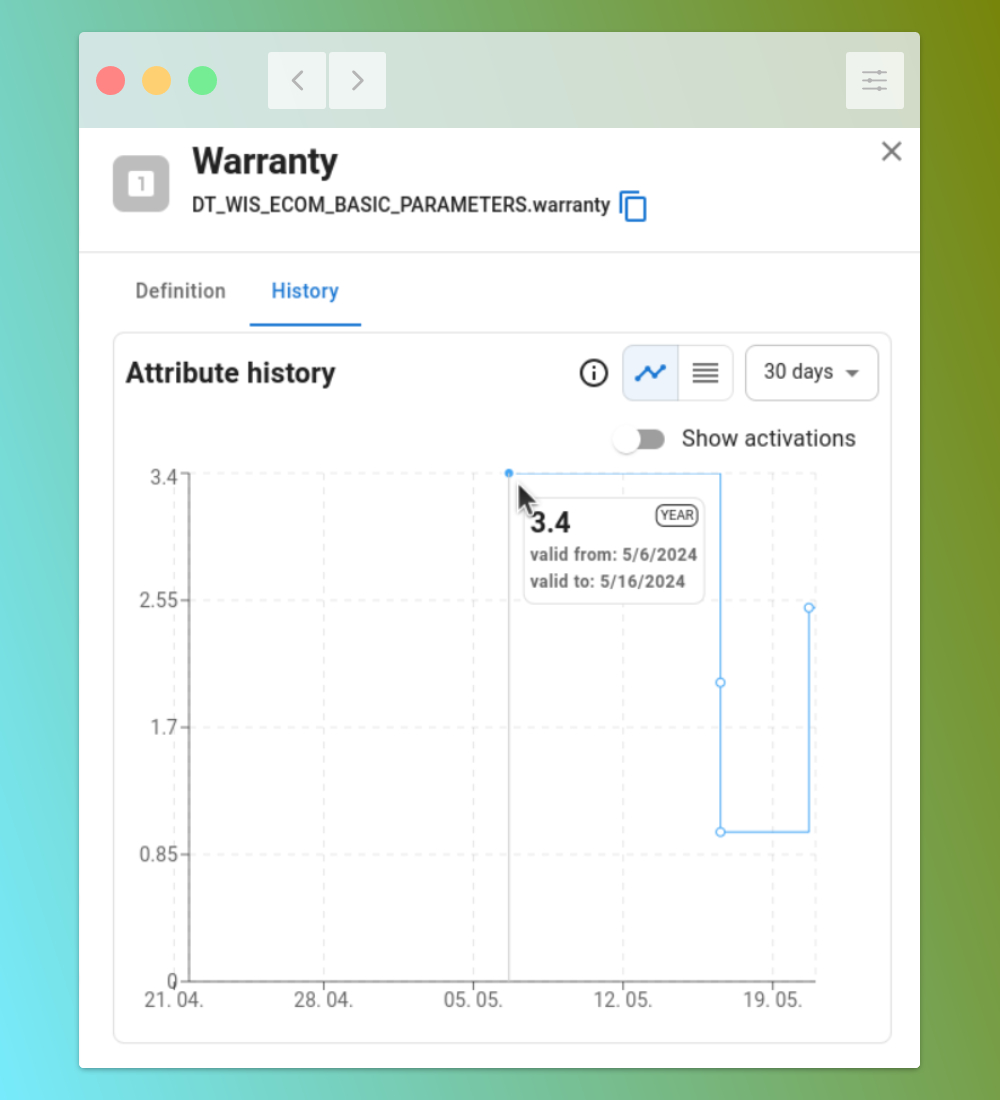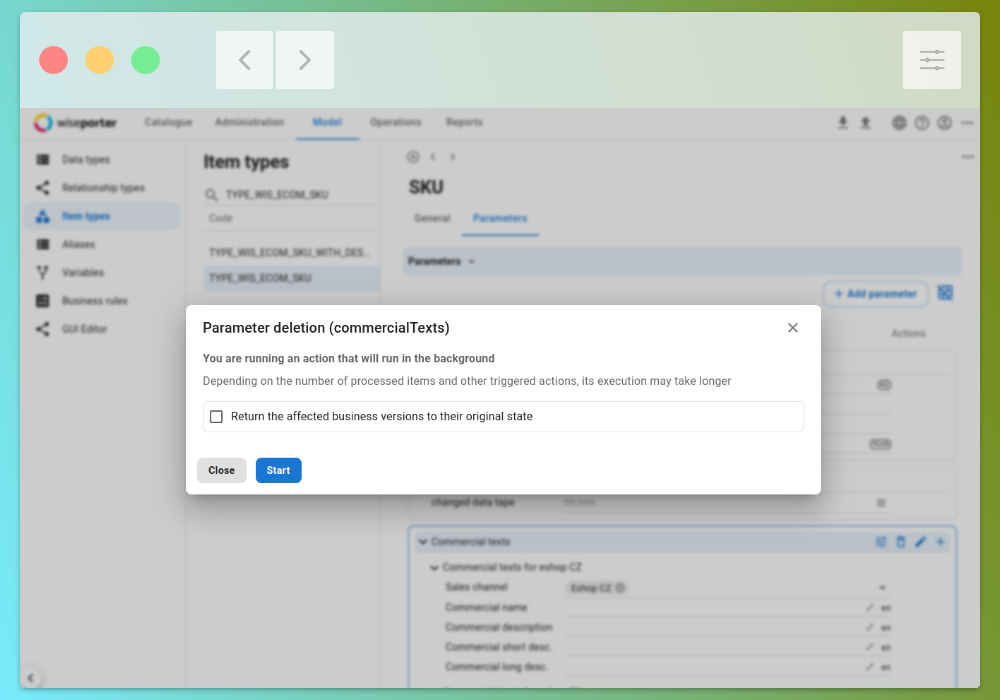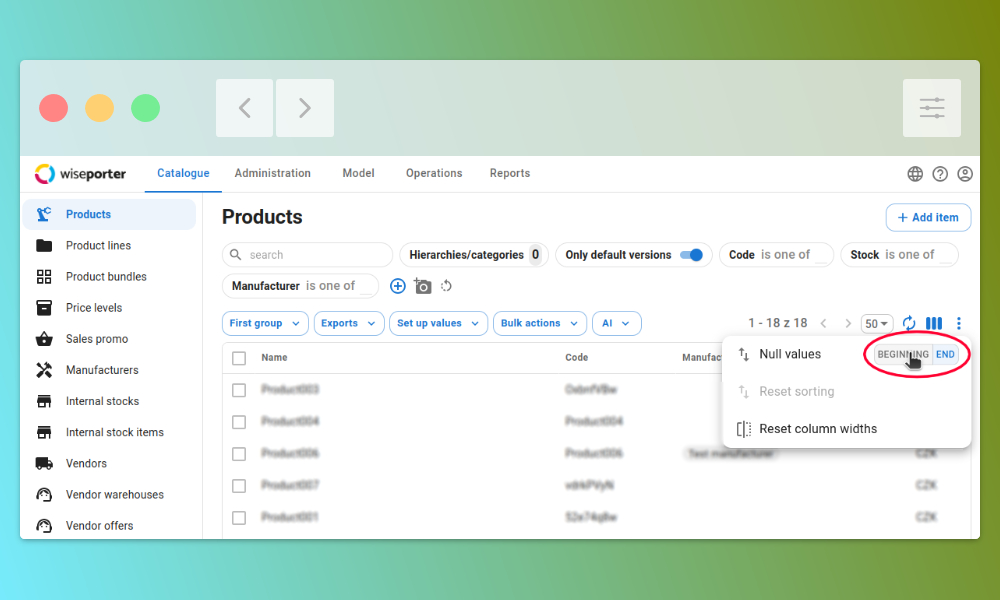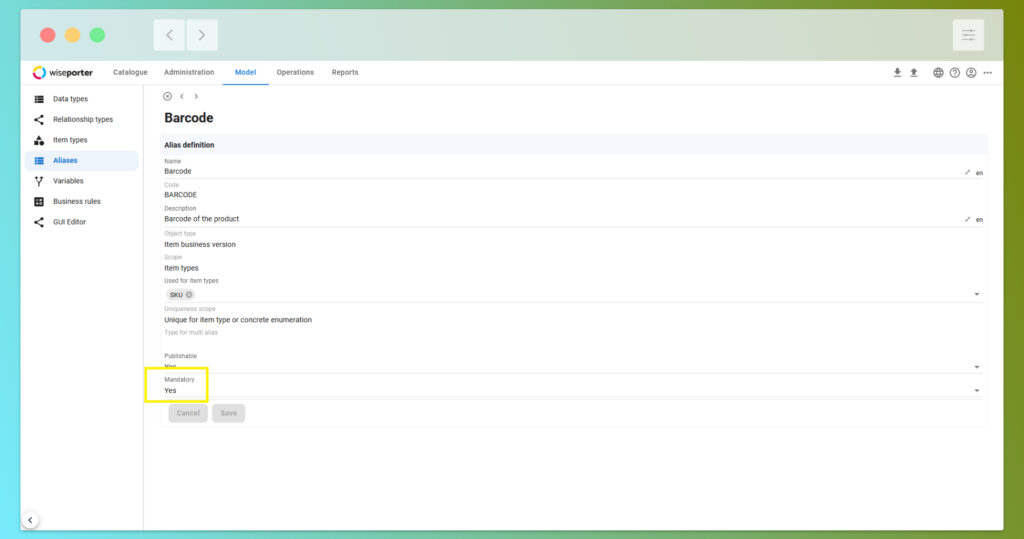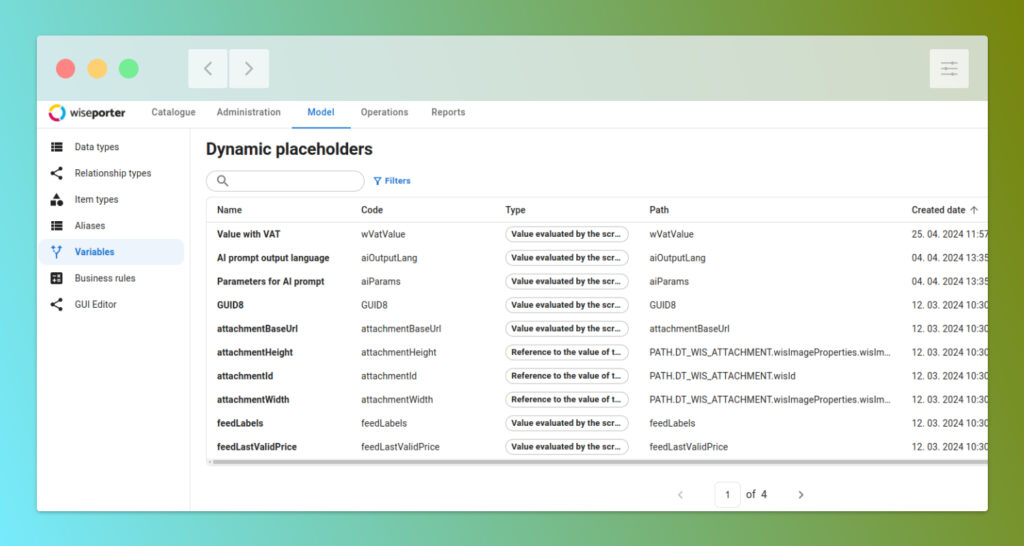WisePorter v1.2 Release Notes
This release’s biggest highlight involves the use of artificial intelligence and machine learning. The potential for their application is enormous, particularly in the areas of product and price management. To keep up with trends and the market, we have added several scenarios to our roadmap that will make your work significantly easier!
Generation of marketing texts. How much time does it take you to create a sales text? And what if you need to prepare several thousand of those? Feeling dizzy already? Well, we have great news for you! We’ve added a feature to WisePorter that allows you to generate such commercial texts in just a few seconds, all thanks to the simple click on the AI button function.
You can now view product details more clearly. Since the previous version, you’ve been able to configure tabs, layout, and item details to suit your needs. In this version, we’ve taken it a step further and now you can display product parameters in a table. This is particularly useful if you have more structurally rich information. As a result, you’ll be able to see much more information in a single view.
Displaying Attribute History. Need to know how the price has changed over a certain period? Now you can easily find this out for a specific attribute – up to the last 90 days. Of course, this isn’t limited just to prices; the history of values is recorded for all attributes.
Bulk Upload of Attachments. WisePorter offers several ways to work with files. You can upload any attachments, from images, videos, and PDFs to 3D models, directly into the catalog from your computer. It can handle external storage and downloading images from manufacturers. It allows for referencing attachments or downloading them from external storage into the catalog. We have expanded these scenarios further. Now you can save images into a special folder, and the catalog will download and assign them to specific products based on the naming conventions.
Modifying an Existing Model. WisePorter is a modeling tool (low-code platform), that makes work highly flexible—whether you’re selling clothing, electrical materials, sanitary products, or even insurance. You can define the model yourself (or use our preconfigured editions) and then fill it with data. If your business changes over time and you need to make adjustments, the catalog will modify the existing model to comply with the new rules.
Sorting Products with Empty Values. As users, you can create and use any number of filters to search for the products you need. We’ve added a feature that allows you to sort items with empty values at the beginning or end of the list within these filters. This way, you’ll never overlook empty values again.
Snapshot Import from Excel. In WisePorter, you can take a snapshot of filtered data. And what’s the benefit of this? Such a snapshot is useful when you want to work repeatedly with a selected set of data, performing further actions on exactly the items you’ve fixed in the snapshot. Now, you can also create a snapshot from an imported Excel file. This allows you to work with a set of products that you uploaded to WisePorter via import. This functionality supports scenarios where you need to work with specific data in the catalog, such as based on a list of product codes from another system, without needing to upload or change the products through import.
Mandatory Aliases + Aliases Settable by Item Type. Aliases are alternative product codes. They are useful when the same product has codes from different systems, “naming” them as your systems know them. In the new version, you can set aliases as mandatory, meaning that without filling them in, it won’t be possible to activate the product for sale. Additionally, we’ve added the ability to set which item type the alias will be used on. So, an alternative code can be set not only for the product itself (SKU) but also for the manufacturer or vendor, for example.
Setting Dynamic Parameters. WisePorter supports the use of so-called dynamic parameters. With this functionality, you don’t have to manually fill in product values. For example, instead of manually creating SEO for each product, you can create a formula that maps values from existing product parameters, such as name or manufacturer, to the appropriate place in the text. Previously, we had to help you with programming to use this functionality for a new parameter. Now, you can easily configure which parameters you want to use dynamic values for.
